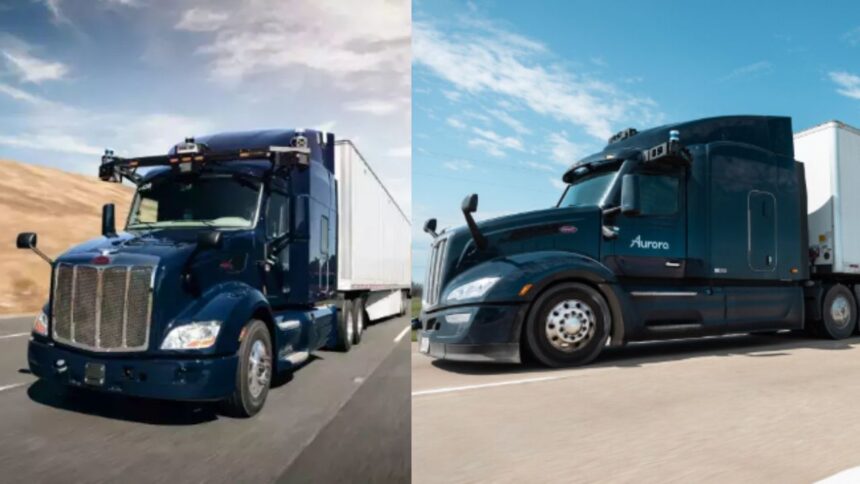In a groundbreaking development, several autonomous trucking companies are gearing up to deploy driverless semi-trucks on Texas highways by the end of 2024.
Industry giants such as Aurora Innovation, Kodiak Robotics, and Gatik AI are at the forefront of this revolutionary shift in freight transportation, aiming to improve efficiency, reduce costs, and enhance road safety.
Texas Emerges as a Hub for Autonomous Trucking
Texas has quickly become a prime location for the testing and deployment of self-driving trucks due to its central location in the transportation network and its relatively lenient regulations on autonomous vehicles.
The state’s 2017 legislation, Senate Bill 2205, set the stage for this development by allowing autonomous vehicles to operate without human drivers.
As a result, numerous autonomous trucking companies have established operations in Texas, particularly in the Dallas-Fort Worth area.
Alliance Texas, a mobility innovation zone in Fort Worth, has attracted companies like Gatik, TuSimple, and Einride, providing them with a platform to test, scale, and commercialize their technologies.
The Potential Benefits of Driverless Trucks
Proponents of autonomous trucking highlight several potential benefits, including:
- Increased efficiency: Driverless trucks can operate continuously without the need for mandatory rest breaks, reducing delivery times and improving supply chain management.
- Cost savings: By eliminating the need for human drivers, autonomous trucks could significantly reduce labor costs for trucking companies.
- Enhanced safety: Advanced sensors and AI algorithms in self-driving trucks can help mitigate human errors, potentially reducing accidents on the road.
- Environmental benefits: Autonomous trucks are expected to improve fuel efficiency by utilizing optimal routes and minimizing idling time.
Addressing Concerns and Challenges
Despite the promising potential of driverless trucks, several concerns and challenges need to be addressed:
Safety and Regulation
Ensuring the safety of autonomous trucks is a top priority, and rigorous testing and refinement of the technology are essential While the federal government has left the regulation of driverless trucks largely up to individual states, creating a patchwork of rules, some experts argue that more comprehensive oversight is needed.
Job Displacement
The rise of autonomous trucks has raised concerns about the potential displacement of human truck drivers.
However, industry experts suggest that the transition will be gradual, and efforts must be made to retrain and upskill current drivers to adapt to new roles within the industry.
Infrastructure Requirements
The successful deployment of autonomous trucks requires significant investments in infrastructure, including advanced technologies like 5G networks and smart sensors.
Collaboration among technology companies, trucking industry stakeholders, and governments will be crucial for a smooth transition.
Final Word
As autonomous trucking companies prepare to launch driverless operations in Texas, the industry stands at the cusp of a transformative shift. Chris Urmson, co-founder and CEO of Aurora, expressed his optimism, stating,
At the end of the year, we anticipate getting to the point where we begin operating those trucks without drivers on board.
The successful deployment of driverless trucks in Texas could pave the way for wider adoption across the United States, revolutionizing the way goods are transported and reshaping the trucking industry as we know it.
However, addressing safety concerns, ensuring comprehensive regulation, and supporting the workforce through this transition will be critical to realizing the full potential of autonomous trucking.
Check Also: The Rolling Stones Kick Off Electrifying 2024 Tour with Sold-Out Texas Show





